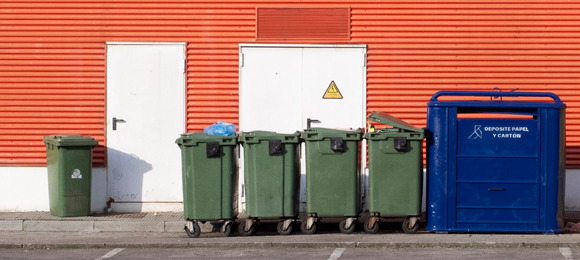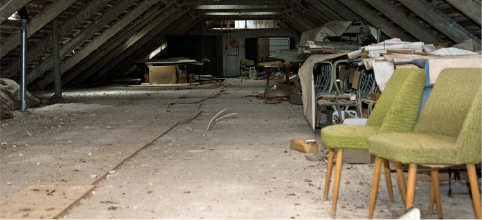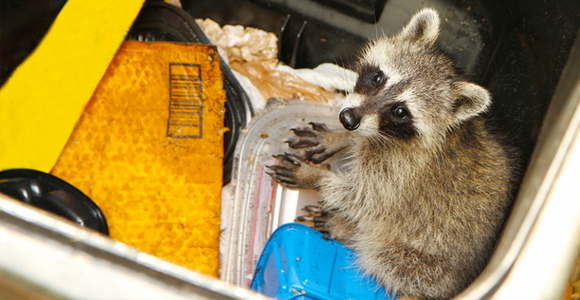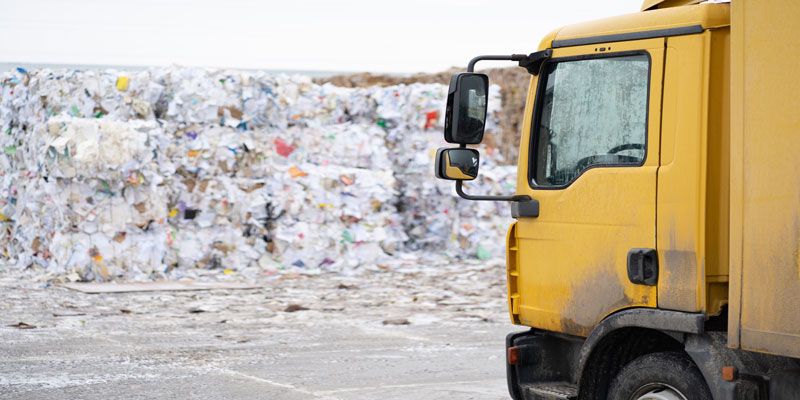
Updated March 15, 2023
With roughly 40% of landfill waste being paper, its no wonder why consumers and businesses are being called now more than ever to recycle paper as often as possible.
We are all sitting on a huge opportunity to reduce the size of our landfills at a time when landfill "real estate" is limited and dwindling by the day.
Recycling is a great cause but there are rules you must follow in order to not contaminate a batch of recyclables.
Not following these rules can lead to recyclables having to be tossed into a landfill, producing the exact opposite results you were trying for.
We'll go over everything you need to know about paper recycling for homes and businesses so you can ensure your recycling efforts don't go to waste.
Jump to:
- Benefits of Recycling Paper
- How to Properly Recycle Paper
- Things to Avoid When Recycling Paper
- Where to Recycle Paper
Find paper recycling near you
Benefits of Recycling Paper
As we've already mentioned, one of the more obvious benefits of recycling paper is conserving landfill space, but that only just scratches the surface of the many benefits of paper recycling.
Many of us were taught in school that recycling paper helps to reduce the amount of trees that are cut down, but how many trees are we actually preserving?
To put it in perspective, if all newspapers that were put into production every year were recycled, we could save around 250 MILLION trees each year!
For every ton (2,000 lbs) of paper that is recycled, we save roughly:
- 17 trees
- 380 gallons of oil
- 3 cubic yards of landfill space
- 4,000 kilowatts of energy
- 7,000 gallons of water
If you're more motivated by the economy than you are the environment, don't worry, we've got you covered there too.
A new study by Eco-Cycle shows that if the United States could transition to a 75% recycling rate by the year 2030, we would create an estimate 1-2 million new jobs!
Jobs created by the recycling industry aren't minimum wage jobs, either. The recycling industry offers theirs workers competitive wages and health benefits.
Learn more:
- How Recycling Facilities Work
- Recycling 101: Learn How to Recycle More and Throw Out Less
- Recycle Your Electronics With Junk Removal Services
How to Properly Recycle Paper
One of the most important things to keep in mind when recycling paper is that it is crucial to keep all paper products clean.
In a mixed recycling bin where you throw aluminum, glass, plastic, paper, and cardboard, you're much more likely to get cross contamination from foods or liquids which can ruin an entire bale of recyclable paper.
The best paper recycling practice is to keep the paper separate from other types of recyclables so that they can remain clean.
It's also important to understand the different types of paper products we use and what they can often be lined or mixed with.
Some of the old ways that we or our parents were taught to recycle is no longer applicable and can actually contaminate our more current paper recycling processes today.
China is the world's largest purchaser of recycled paper and they have strict rules, requiring that recycled paper have 1% or less of contamination.
So while it used to not be necessary in the past to remove the plastic windows in business envelopes, it can be the difference between contaminating recycled paper that can be repurchased or not.
The best practices for recycling any type of material is to understand exactly what can and can't go in your bin, specifically in your area.
Some recycling facilities can handle certain products that others cannot.
For example, most recycling centers can't recycle paper cups because they are actually lined with plastic.
There are, however, some recycling centers that have special machines that can separate this plastic from cups.
That's why it's important to get a list of accepted material directly from your waste management company so that you aren't mistakingly contaminating the paper or other items you're trying to recycle.
Here is a list of the most universally accepted paper products that can be recycled:
- Newspaper
- Printer paper
- Paper bags
- Cardboard
- Magazines
- Envelopes
- Cereal/pasta boxes
Mixed material items like orange juice containers and milk cartons can be recycled in some areas, and not in others.
Again, that's why it's important to do local research before tossing just anything into your recycling bin.
Things to Avoid When Recycling Paper
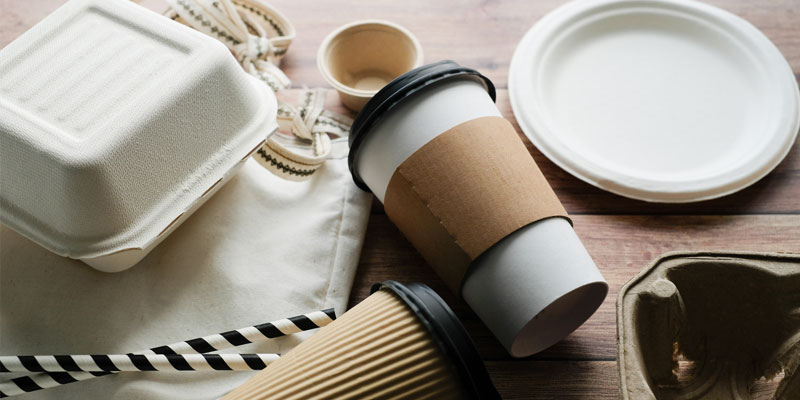
There are many common mistakes well-intentioned people make when recycling paper.
One of the most common is tossing in pizza boxes with grease stains.
While cardboard is a recyclable material, no paper products that are contaminated with food should be recycled.
If the top half of your pizza box does not have any grease on it, feel free to separate that from the bottom half of your pizza box and put it into your recycling as long as you're sure it's clean.
Another common mistake people make is throwing in paper items that are lined or coated with wax or plastic, like paper cups, milk cartons, juice boxes, receipts, parchment paper, printed photographs, etc.
Many recycling centers can't recycle paper with fibers are already heavily refined, like tissue paper.
Paper towels and napkins have fibers that are too short to be recycled (but they can be composted!).
One of the more shocking pieces of information regarding paper recycling that is a common mistake, for businesses especially, is that shredded paper cannot be recycled in the same manner as regular paper.
The fibers in shredded paper have been shortened too much and the small pieces often jam recycling machinery.
Some facilities allow shredded paper that is contained in plastic bags and kept separate from other full pieces of paper, but not all do.
Check with your local facility to learn more.
Where to Recycle Paper
If your curbside trash service also offers recycling, having your recycling picked up at the end of your driveway is certainly the most convenient option.
For those who live in areas where this isn't offered, however, there are plenty of other options available.
Many communities have drop-off recycling programs or community dumpsters at different drop-off locations for recyclables.
Michigan, for example, has a paper and cardboard recycling program called PaperGator where residents can deposit their recyclable paper products into dumpster containers at several designated drop-off locations.
Visit Earth 911 to find recycling centers or programs near you. You can type in the specific type of material you'd like to recycle, as well as your zip code, and you'll be shown recycling solutions in your area.
If you're a business or contractor that has large amounts of paper or cardboard to recycle that won't fit in your curbside collection, consider renting a dumpster for your recycling efforts.
Or, if you have a lot of paper to recycle but not enough to justify renting a dumpster, consider hiring a junk removal company to haul away your paper for you.
A junk removal company will be able to recycle all your paper and cardboard products on your behalf without you having to lift a finger.
Hometown makes it easy to find junk removal services and dumpster rentals for all types of disposals across the U.S., including paper recycling!
Search your zip code, answer a few quick questions about your project needs, and get free quotes from qualified companies in your area.
